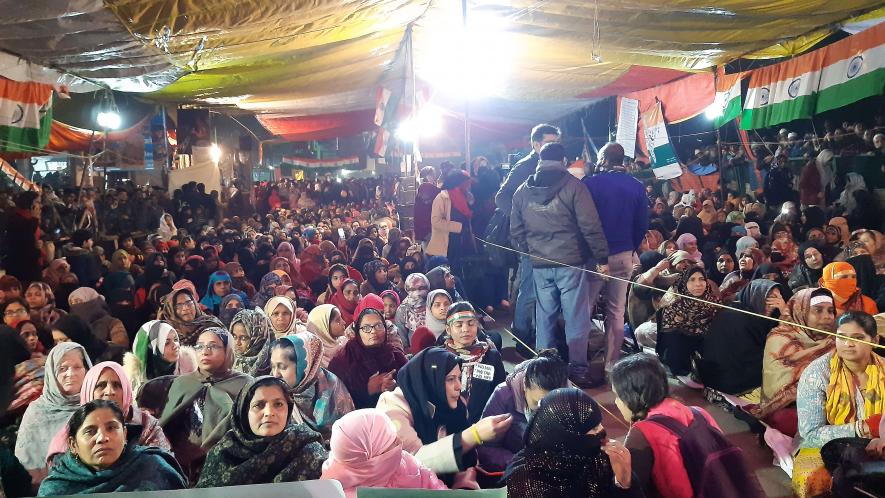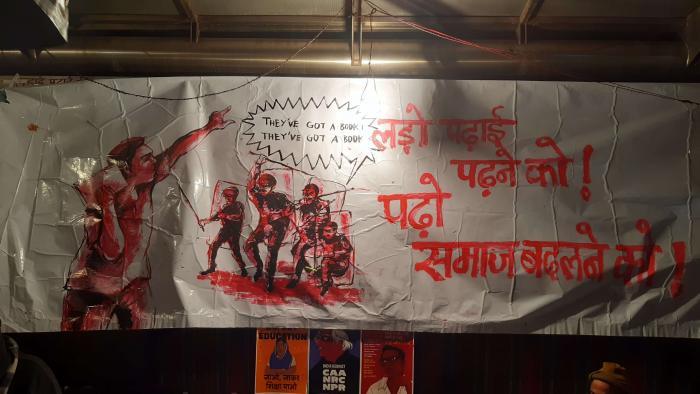Shaheen Bagh: SC Appoints Advocate Sanjay Hegde as Interlocuter, Wants Agitators to Adjust a Bit

New Delhi: Stating that in a democracy everyone has the right to protest but it should not create inconvenience to others, the Supreme Court on Monday asked Senior Advocate Sanjay Hegde, Senior Mediator Sadhna Ramchandran and former Chief Information Officer Wajahat Habibullah to speak to the protestors at Shaheen Bagh and find a solution to the traffic inconvenience at Road Number 13A (GD Birla Marg that connects Noida-Delhi-Haryana). The arterial road has been blocked since the past two months when the sit-in protests began against the Citizenship Amendment Act (CAA), National Population Register (NPR) and the proposed National Register of Indian Citizens (NRIC).

A division bench comprising justices SK Kaul and KM Joseph said protest was a matter of right, but it should not block the road. The court wanted the protestors to adjust a little bit so that the road could be opened for vehicular movement.
Adjourning the matter for a week, the court asked the Delhi Police to file an affidavit on next date of hearing (Monday).
The apex court was hearing an appeal filed by Advocate Amit Sahni, who had earlier approached the Delhi High Court seeking directions to the Delhi Police to remove the blockade and ensure smooth flow of the traffic
Here are the details of the proceeding:
Lawyer and petitioner Amit Sahni: The road is blocked. There is a guideline for such protests. But it is not being followed.
Justice SK Kaul: A certain section (of the population) is aggrieved by a law. The law is under challenge in the Supreme Court. We will not say people cannot protest in a pending case. The only question is where to protest. Traffic is not an issue. The larger question is tomorrow some other law may be challenged. So, can a road be blocked again?
Lawyer for protestors: We have filed an intervention application on behalf of three people. One is Wajahat Habibullah, former CIC.
Justice Kaul: Intervention is okay. But can they talk to the people?
Lawyer for protestors: There is a protest by people of all religions.
Justice Kaul: We are not talking about religion. Our concern is limited. Tomorrow, another section of society may come. If everyone starts coming on the roads, then you know Delhi. Traffic should not be blocked.
Lawyer for protestors: There are several aspects of this protest. Only one side is being projected. If your concern is about traffic, then I will give you a map.
(She hands over a map to the bench)
Only one side of the road is blocked by the protestors. The other side is not used by the protestors.
Justice Kaul: Let’s be practical. And I am not a traffic manager. Let's find out a solution. So, I am asking: Can you (intervenors Wajahat Habibullah, Chandrashekhar Azad and Bahadur Abbas Naqvi) go to the people and speak to them on how they can protest and not block the road?
Lawyer: Give me some time.
Lawyer Amit Sahni: But students are unable to go to school.
Justice Kaul: See, let me tell you what I told her. We are here to get a solution. Where do we end?
Lawyer Sahni brought up Bhim Army chief Chandrashekhar Azad’s comment that there would be 5,000 more Shaheen Baghs.
Justice Kaul: We are not concerned about 1,000 such protests coming up. Protest is a matter of right. We are only concerned about the blocking of roads.
Lawyer for protestors: Ambulances and school buses are not affected.
Solicitor General Tushar Mehta (appearing for the Centre): No. There is complete blockade.
Justice Kaul: The protest can be adjusted somewhere around the road. Just that road should not be blocked.
Mehta: Let her (counsel for protestors) speak to someone. But she cannot come tomorrow and say others are not willing.
Justice Kaul: Then we will see. But at least give her time.
Mehta: The solution is: remove them. They keep women and children at front. We had meetings with the residents’ welfare association. We said you cannot keep the entire city hostage under the garb of protest.
SC: Some people have intervened, who share the thought process with the protestors. Protestors have the right to protest if they are aggrieved by any law. But we are concerned that others may also protest tomorrow, and this will create chaos.
So, we ask the intervenors to speak to the protestors.
SC appoints advocate Sanjay Hegde to speak to the protestors.
SC order: We would like Sanjay Hegde to work as interlocutor and he can take along someone who can help him. Lawyer Sadhna Ramchandran may help Sanjay Hegde.
Mehta: Let the message not go that the police is on its knees before the protestors.
Justice KM Joseph: You have not done what you could have done all these days. So, let us do it now.
Justice Kaul: If they (protestors) do not understand, then we will let the authorities do what can be done. But I have inner feeling that a solution will be found.
SC: Protest is a fundamental right. Freedom of speech is restricted to only two things: sovereignty and law and order. Just two. So, the only question is where to protest.
Mehta: Tomorrow, they cannot say that the government is not giving us land to protest so we will not leave.
Justice Kaul: I disagree with you. There may not be a place where they can go. Probably, they are looking for a nearby place to protest.
SC: It is also important that you should allow people to protest. Sometimes, it can be a better weapon than legislation. It helps in opinion-making. Protests should happen peaceful and lawfully. But the only question is where.
The court adjourned hearing till next Monday. It refused to pass any interim order today.
Get the latest reports & analysis with people's perspective on Protests, movements & deep analytical videos, discussions of the current affairs in your Telegram app. Subscribe to NewsClick's Telegram channel & get Real-Time updates on stories, as they get published on our website.
























